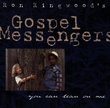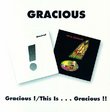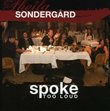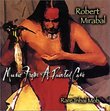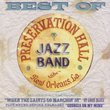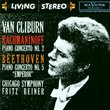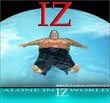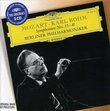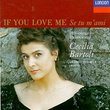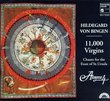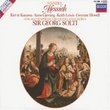| All Artists: George Frideric Handel, Neville Marriner, Elly Ameling, Philip Langridge, Academy & Chours of St. Martin-in-the-Fields, Anna Reynolds, Gwynne Howell Title: Handel - Messiah / Ameling · A. Reynolds · Langridge · Howell · Marriner Members Wishing: 2 Total Copies: 0 Label: Decca Release Date: 10/17/1995 Genres: Special Interest, Classical Styles: Holiday & Wedding, Opera & Classical Vocal, Historical Periods, Baroque (c.1600-1750) Number of Discs: 2 SwapaCD Credits: 2 UPC: 028944482423 |
Search - George Frideric Handel, Neville Marriner, Elly Ameling :: Handel - Messiah / Ameling · A. Reynolds · Langridge · Howell · Marriner
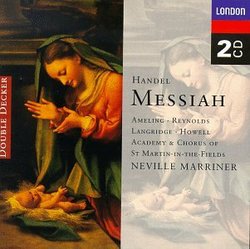 | George Frideric Handel, Neville Marriner, Elly Ameling Handel - Messiah / Ameling · A. Reynolds · Langridge · Howell · Marriner Genres: Special Interest, Classical
Neville Marriner's 1976 account of the Covent Garden version of the score (1743), with the Academy and Chorus of St. Martin-in-the-Fields and soloists Elly Ameling, Anna Reynolds, Philip Langridge, and Gwynne Howell, is p... more » |
Larger Image |
CD DetailsSynopsis
Amazon.com Neville Marriner's 1976 account of the Covent Garden version of the score (1743), with the Academy and Chorus of St. Martin-in-the-Fields and soloists Elly Ameling, Anna Reynolds, Philip Langridge, and Gwynne Howell, is positively plush-sounding but nicely animated. I'd love to have this kind of string tone for, say, the Dvorák Serenade, but for Handel it may be just a bit much. --Ted Libbey Similar CDs
Similarly Requested CDs |
CD ReviewsDon't Miss This One! essmac | Nashville, TN USA | 04/19/2000 (5 out of 5 stars) "A first-rate recording at a cut-rate price. Excellent work from the chorus- well-blended and clean, but not antiseptic and dull. Likewise excellent work from the soloists: especially Ms. Ameling. She takes the more relaxed 6/8 version of Rejoice Greatly-- so it's not flashy, but she has no problem with the coloratura and spins out some amazingly long-breathed phrases. THe real draw for me is "Thy Rebuke Hath Broken His Heart" and "Behold and See". While remaining within the boundaries of appropriate performance style and good taste, Ms. Ameling delivers these two forgotten parts of Messiah with an emotional appeal that is absolutely devastating: wrenching, moving, full of anguish and disbelief, but with economy, sensitivity, restraint and always with beautiful tone. It's absolutely unforgettable and it blasts the dust right off of Messiah: a work that is so often given a careless, pedestrian performance. Completely stunning- it will make you care about Messiah again." Beautiful, but not what I was expecting. essmac | 02/21/2001 (4 out of 5 stars) "The singers in this recording deliver beautiful performances, both the soloists and the chorus - good phrasing, diction, and ensemble singing in lovely voices. However, I didn't realize before buying this CD that, as the liner notes say, "Neville Mariner's recording is based on the first London performance of 1743, and several numbers are markedly different from the more familiar later versions." Some pieces are sung by different voice parts, and others include bars of music that Handel cut or changed later. For example, the most disappointing part for me was "But who may abide," (sung by bass instead of alto, though that's not unusual) which completely omits the excicting prestissimo "refiner's fire" section that most of us are used to (and which I really enjoy)! This would certainly be an excellent historical recording for someone who collects or studies Handel's music - beautifully performed (though some parts seem unusually fast), and interesting for studying the development of Handel's composition - and it is still his sacred masterpiece. Plus it's an excellent bargain for a top-quality 2-disc recording. However, if you're looking for the most FAMILIAR Messiah, perhaps this isn't the one for you. I opted for the excellent Chaconne (Chandos) recording by Richard Hickox instead, also with Philip Langridge, and my favorite Bryn Terfel." Probably the Finest Messiah Recording Gregg M. Howell | Baltimore, MD United States | 11/17/2005 (5 out of 5 stars) "First of all, what the other online reviewers here fail to realize is that this is Handel's 1743 Covent Garden premiere Messiah score , NOT the "final" version. So, those looking for the familiar choruses, solos, etc. will be very disappointed and should probably seek another recording.
Though much of the score is the same, much of the score is very different as this was "a work in progress." One can tell the differences beginning with the tenor aria "Ev'ry Valley," until the final chorus "Worthy is the Lamb." One may even wonder why Handel choose to alleviate some of the score (most notably "How Beautiful Are the Feet" which here is a duet between alto and soprano with a rousing chorus. The aria in it's present version is quite dull in comparison). However, Handel scored based on available forces, and it is documented that Handel continued to "tweak" the score until he died. Tempos are brisk, as well they should be. Messiah was nearly destroyed by the late-romantic conductors that thought it would sound better with a full symphonic orchestra and choruses "of a thousand." What remains is a wall of noise with all the nuances destroyed. We are, after all, talking about Baroque music. This ASMF 1976 recording began the revival of period tempos, ensembles, and the return of vocal ornamentation. The orchestra is in its usual flawless form in this recording as is Lazlo Heltay's fine singers. The solosits do a fine job, though Ameling, at times, has some strange vowel sounds (she obviously was not yet skilled at singing in English). Howell is the strongest of the soloists. For overall beauty of sound and dramatic intensity, this is the ultimate recording!" |

 Track Listings (16) - Disc #1
Track Listings (16) - Disc #1